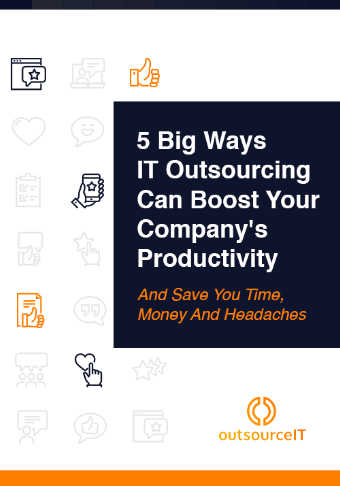Businesses are always on the lookout for a competitive edge, and in many cases, it means working with multiple software vendors. This kind of setup might be the most affordable or most available for certain businesses, but it’s not usually a great long-term strategy for an enterprise aiming for growth.
Managing multiple vendors can be a pain
A multi-vendor setup is pretty common among small- and mid-sized businesses (SMBs) because these organizations tend to have limited resources. With limited resources on hand, solutions can only be had one at a time. But while that setup may seem easy enough to implement, multi-vendor management can actually get tricky for the following reasons:
Direct competition
Sometimes, businesses work with vendors who directly compete with one another. If left unchecked, it can lead to conflicts in software and even business relationships. And when it gets messy, service goes downhill.
Different work cultures
Different vendors have different work cultures. Some might like to operate on tight timelines, while others may work loose and fast with schedules. What’s mission-critical for your business might not be high on a vendor’s priority list. That will result in downtime, which translates into lost earnings.
Higher communication costs
Lastly, dealing with several vendors in-house means more time spent on the phone and on the internet trying to coordinate deployment and support.
Related article: What modern businesses should expect from managed IT
What can my MSP do for me?
Many business leaders don’t realize that their partner managed services provider (MSP) is the ticket to a seamless multi-vendor experience. MSPs work with different vendors — even direct competitors — on a daily basis. So if your managed IT partner is serious about its customer service quality, it would have taken steps to make multi-vendor deployments conflict-free long before you even sign up.
It’s best to ask your MSP’s customer service representatives about the specifics, but as a general rule, they should be able to do the following:
Act as the middleman
Competitive conflicts happen on all levels of business. But even bitter rivals will find a middle ground in the name of good business and good service.Take smartphone giants Apple and Samsung, for instance. The two corporations have been locked in a tightly contested smartphone arms race for the better part of a decade, but even they make some concessions for one another. Samsung has supplied internal components for the iPhone X, and the two companies have not resorted to app development lockouts to hinder the other’s progress.
A good MSP will know how to leverage this middle ground. Ask your sales or customer service rep about how they’ll make sure competing platforms would work together in unison.
Harmonize deployment
An MSP will help you make sense of the different software cycles of different vendors, but a great MSP will eliminate that problem altogether. One way we do this at outsourceIT is by scheduling major updates to occur at the same time. This way, you won’t have to keep updating and restarting individual computer terminals yourself.Find an IT partner whose reputation is that of a well-oiled machine. Updates and patches may come in a steady stream, but if your MSP has a good grip of things, it shouldn’t disrupt your operations.
Minimize communication costs
Your MSP should be able to do all the coordination work for you. That means you get to reserve your communication resources for what you actually do. Not only does this help you cut expenses, but it’ll also free up your phone lines and bandwidth so you can focus on serving your customers and not on addressing IT issues.
Related article: The cost benefits of managed IT services
Leave your multi-vendor management needs to the proven IT experts at outsourceIT. We’ll do all the heavy lifting for your tech needs. Contact us today for a quote.
5 Big Ways IT Outsourcing Can Boost Your Company's Productivity!
Before you can honestly consider outsourcing IT management, you need to be 100% confident that it will solve problems and unclog bottlenecks.


